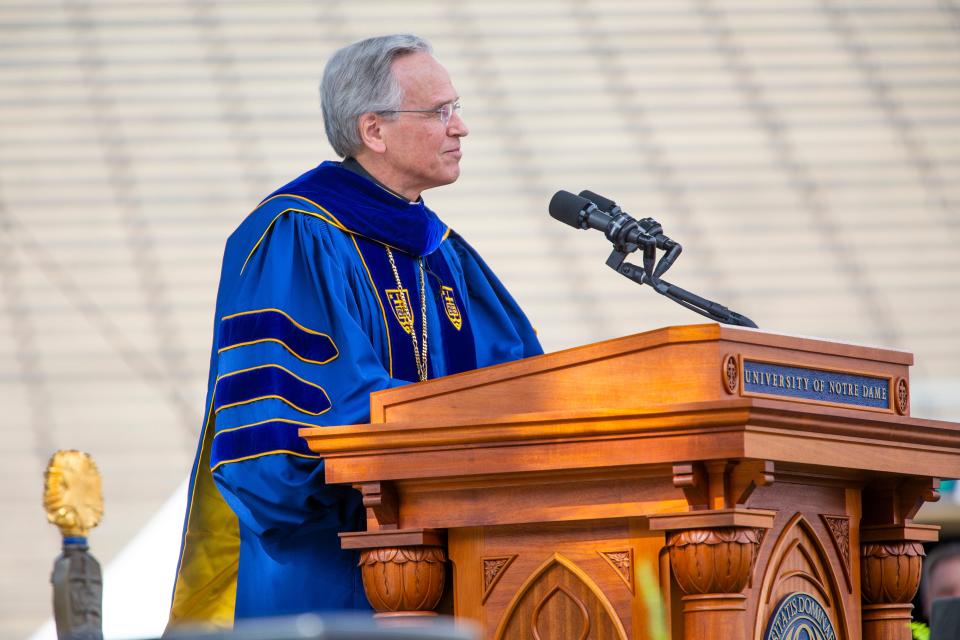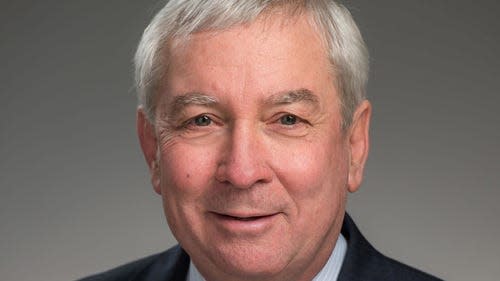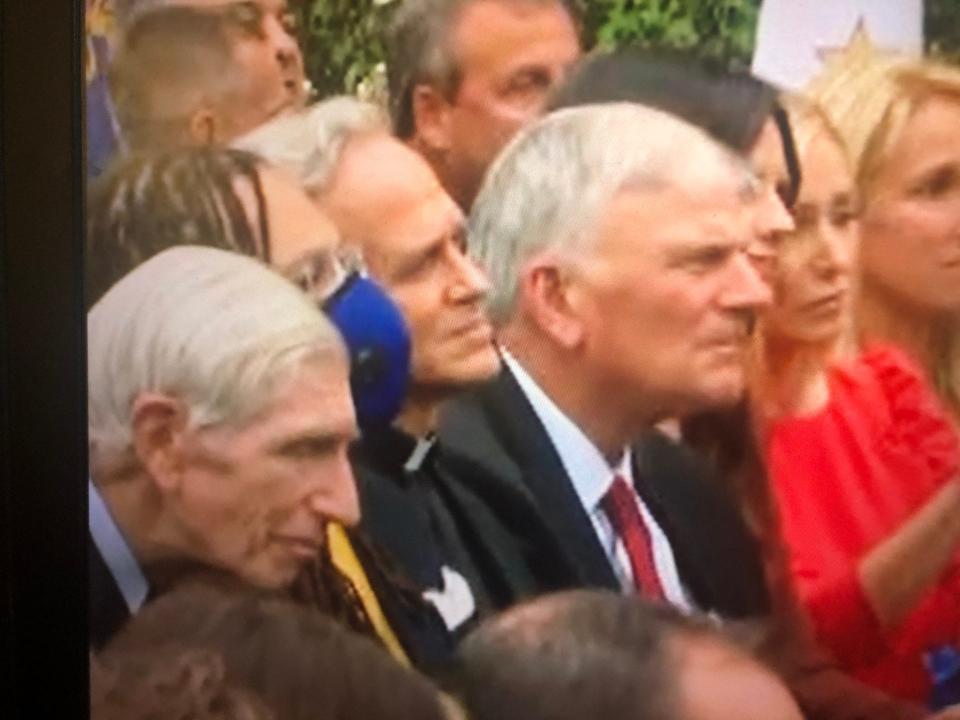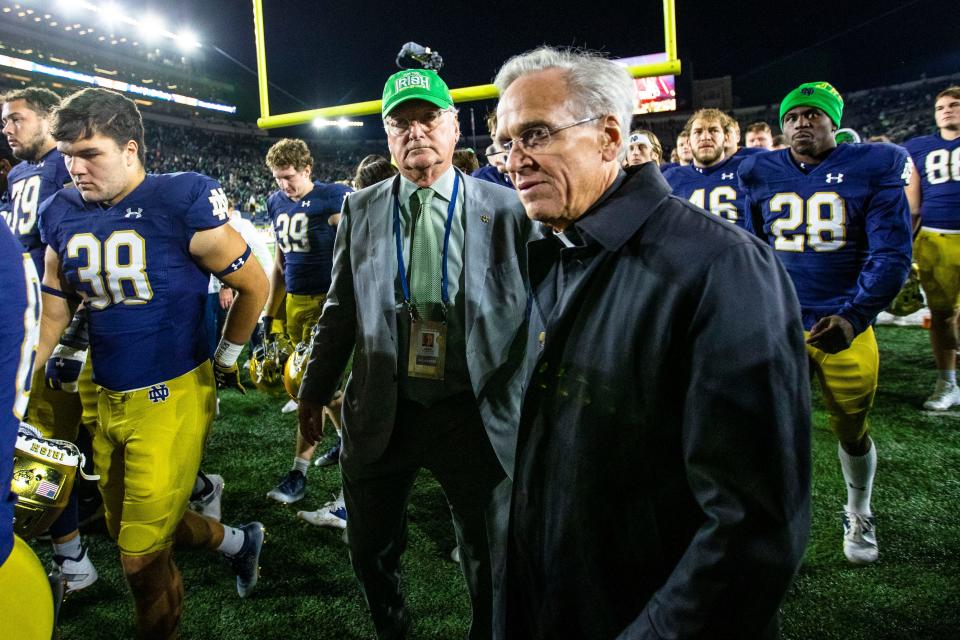When Notre Dame president Rev. John Jenkins steps down, legacy of research will remain
SOUTH BEND — One of the Rev. John Jenkins' earliest decisions as Notre Dame president was to create a new position to advance research initiatives at the university.
Nearly two decades later, with Jenkins' tenure set to end in 2024, funding awarded to Notre Dame research has nearly quadrupled. The university this year was admitted into a selective association of the top research institutions on the continent. And the number of undergraduate students undertaking original research has grown from one in 10 to one in three.
The university's 17th president, Jenkins will have served for 19 years when he steps down from his role next spring. He plans to return to teaching and ministry at Notre Dame, according to a statement.
Notre Dame's Board of Trustees will elect the university's next president from among more than 60 priests in the Congregation of Holy Cross, the university's founding order. The search is underway.
“Serving as President of Notre Dame for me, as a Holy Cross priest, has been both a privilege and a calling,” Jenkins said in a statement.
During his 2005 inaugural address, Jenkins commended his predecessors Rev. Ted Hesburgh and Rev. Edward Malloy, who sat in attendance, for weaving Notre Dame's pursuit of groundbreaking research together with its Catholic mission.
The pressing social issues Jenkins had in mind then were poverty and despair around the world, environmental devastation, and technological advances that promised to change the world in complex ways.
"Our research must not be separate from our Catholic mission, but must draw strength from it and contribute to it," Jenkins said during his speech. "In areas where we have attained excellence, there is often a connection with that mission."

From the time Robert Bernhard arrived in 2007 to serve as the university's first vice president for research, he said, Jenkins' words were his north star.
Bernhard, a longtime engineering professor at Iowa State University and Purdue University before coming to Notre Dame, said his allegiance had long been to land-grant universities, which aim primarily to educate and create prosperity for their state's residents.
Notre Dame, people joked with him, was the "Catholic land-grant university." The mission seemed more profound and rooted in complex moral questions.
With Jenkins' counsel, Bernhard says, he understood the university's mission to be to conduct research that serves people, especially those who are poor and vulnerable.

“The undergraduate programs and the athletic programs of the university and the university's Catholic character were unquestioned," Bernhard told The Tribune on Friday, making a call from The Netherlands during his year-long hiatus from teaching. "They were preeminent. But to be a truly great university, we had to build the equivalent of that on the research side."
This June, Bernhard's 16-year tenure culminated in Notre Dame's admission into the Association of American Universities, a consortium of 71 leading research universities in the U.S. and Canada that admits new members only by invitation.
Bernhard stepped down as head of research this year. Jenkins appointed Jeffrey Rhoads, a mechanical engineering professor who led the Purdue Institute for National Security, to replace him.
Along with the AAU acceptance, the money tells the clearest story on this front.
In 2007, Notre Dame received about $70 million in research award money from outside sources like government agencies and foundations. In fiscal year 2022, that figure had grown to $244 million.
Major recent initiatives include:
$42.4 million in 2019 to form the Labs for Industry Futures and Transformation Network, a partnership with the South Bend-Elkhart Regional Partnership to promote economic growth and workforce development in local manufacturing and technology sectors
$33.7 million in 2019 to study new ways to prevent mosquito-borne diseases such as malaria and dengue
$40 million in 2020 to improve education outcomes in developing countries
$25 million in 2021 to address the saturation of a key natural resource, the radio frequency spectrum
Tracking closely with outside awards, research expenditures by Notre Dame rose to $281 million in 2022.
Mainly through the Pulte Institute for Global Development and the Eck Institute for Global Health, Notre Dame's research is active in more than 60 countries, according to the university, part of why Jenkins is hailed for expanding the university's global reach.
The school's expanded research footprint also became crucial during one of the major crises Jenkins weathered as Notre Dame president: the COVID-19 pandemic.

Jenkins was at the center of controversy for insisting on a return to in-person classes — a plan that unraveled and led to two weeks of online coursework at the start of the fall 2020 semester — and failing to practice social distancing or to wear a mask at the Supreme Court nomination ceremony for former Notre Dame law professor Amy Coney Barrett.
He issued a public apology and, days later, tested positive for COVID-19.
But with just two months' notice that in-person instruction would resume, Notre Dame's Genomics and Bioinformatics Core Facility, a new piece of the research apparatus, developed the capacity to test nearly every student on campus each week.
More recently, Jenkins has led Notre Dame in outlining three key research areas in need of expansion over the next 10 years in its strategic framework released this August. They are health and well-being; climate change and the environment; and data and computational science.
"Building the leading global Catholic research university on par with but distinct from the world’s best private universities has never been a simple task," the framework's authors conclude. "It never will be. And yet it remains one of the most exciting projects in global higher education."

Email South Bend Tribune city reporter Jordan Smith at JTsmith@gannett.com. Follow him on Twitter: @jordantsmith09
This article originally appeared on South Bend Tribune: Notre Dame President Rev. John Jenkins to step down

